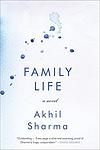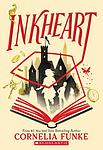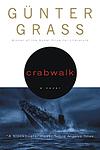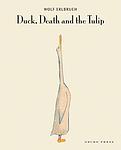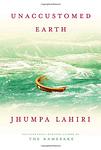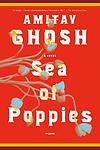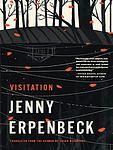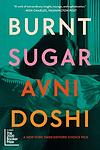The Greatest Indian, German "Fiction" Books Since 2000
Click to learn how this list is calculated.
This list represents a comprehensive and trusted collection of the greatest books. Developed through a specialized algorithm, it brings together 284 'best of' book lists to form a definitive guide to the world's most acclaimed books. For those interested in how these books are chosen, additional details can be found on the rankings page.
Genres
Countries
Date Range
Reading Statistics
Click the button below to see how many of these books you've read!
Download
If you're interested in downloading this list as a CSV file for use in a spreadsheet application, you can easily do so by clicking the button below. Please note that to ensure a manageable file size and faster download, the CSV will include details for only the first 500 books.
Download-
1. Austerlitz by W. G. Sebald
The novel follows the story of Jacques Austerlitz, an architectural historian who was brought to England on a Kindertransport from Czechoslovakia during World War II. As an adult, Jacques embarks on a journey to uncover his past, including his original identity, his parent's fate, and his own lost history. The narrative is a haunting exploration of memory, identity, and the lasting impact of the Holocaust.
-
2. The Book Thief by Markus Zusak
Set in Nazi Germany during World War II, the novel follows the story of a young girl who finds solace in stealing books and sharing them with others. In the midst of the horrors of war, she forms a bond with a Jewish man her foster parents are hiding in their basement. The story is narrated by Death, offering a unique perspective on the atrocities and small acts of kindness during this period. The girl's love for books becomes a metaphor for resistance against the oppressive regime.
-
3. The White Tiger by Aravind Adiga
"The White Tiger" is a darkly humorous novel set in modern-day India that explores the country's class struggle through the eyes of an ambitious and cunning protagonist. Born in a poor village, he moves to Delhi to work as a chauffeur for a rich family. He eventually breaks free from his life of servitude by committing an act of shocking violence, and uses his newfound freedom to become a successful entrepreneur in Bangalore. The story, told through a series of letters written to the Chinese Premier, is a scathing critique of India's social and economic disparities, and the corruption that permeates all levels of society.
-
4. Family Life by Akhil Sharma
Family Life is a poignant, semi-autobiographical novel that follows the experiences of an Indian family that immigrates to America in the late 1970s. Their dream of a better life is shattered when the older son suffers a terrible accident that leaves him brain-damaged. The story is narrated by the younger son, who struggles with the pressures of his parents' expectations, the trauma of his brother's condition, and the cultural dislocation of being an immigrant in America. The novel explores themes of family, love, loss, and the immigrant experience.
-
5. The Swarm by Frank Schatzing
"The Swarm" is a science fiction novel that explores the disastrous consequences of mankind's exploitation of the world's oceans. The narrative follows a group of scientists around the world as they try to understand a series of inexplicable, catastrophic natural disasters. They eventually discover that these events are not random but are the result of a collective intelligence in the sea, a swarm of marine life that has decided to fight back against humanity's destruction of their habitat. The book combines elements of ecological thriller, disaster novel, and speculative fiction as it explores the potential consequences of human interference with the natural world.
-
6. Inkheart by Cornelia Funke
The book revolves around a young girl named Meggie and her father Mo, who possesses a unique ability to bring characters from books to life by reading aloud. This gift, however, comes with a price, as they are entangled in a dangerous adventure when a villain from a fantasy book called "Inkheart" is accidentally summoned into the real world. As they struggle to fix the chaos caused by this crossover, they must navigate a treacherous world of magic and betrayal, while attempting to thwart the villain's sinister plans and protect the balance between reality and the fantastical realms of literature.
-
7. The Inheritance of Loss by Kiran Desai
This novel explores themes of love, loss, and the human struggle for identity amidst political unrest. Set in India during the Nepalese movement for an independent state, the narrative follows the lives of a retired judge living in the Himalayas, his granddaughter, and his cook. As the political situation worsens, each character must grapple with their own personal issues, including the judge's regret over his failed marriage and his granddaughter's struggle to find her place in the world. The cook, meanwhile, dreams of a better life for his son in the United States. The narrative weaves together these individual stories to create a poignant tapestry of human resilience in the face of adversity.
-
8. Measuring the World by Daniel Kehlmann
"Measuring the World" is a historical novel that reimagines the lives of two brilliant and driven men, German mathematician Carl Friedrich Gauss and German geographer Alexander von Humboldt. The narrative alternates between the two protagonists, exploring their individual quests to quantify and understand the world. Gauss, a child prodigy from a poor family, rises to become one of the greatest mathematicians in history, while Humboldt, a wealthy and ambitious explorer, embarks on a five-year journey across South America. Their paths converge in a humorous and touching manner, highlighting the contrast between their approaches to knowledge and discovery.
-
9. The Blind Side of the Heart by Julia Franck
"The Blind Side of the Heart" is a historical novel that explores the life of a German woman before, during, and after World War II. The story begins with her abandonment of her young son at a railway station, then flashes back to her own childhood, her experiences during the war, and her tumultuous relationships. The narrative provides a deep and unflinching look at the psychological effects of war and the struggle for survival, as well as the profound impact of trauma and loss.
-
10. Crabwalk by Günter Grass
This novel delves into the tragic sinking of the Wilhelm Gustloff, a German ship, during World War II, through the eyes of a journalist investigating the event's historical and personal ramifications. The narrative weaves together past and present, exploring the intergenerational impact of the catastrophe on survivors and their descendants. The author employs a unique storytelling technique, the "crabwalk," moving backward and forward in time to reveal the complexities of guilt, memory, and the reinterpretation of history. Through its intricate plot and deep character exploration, the book addresses the themes of nationalism, the repercussions of war, and the struggle to come to terms with one's heritage.
-
11. Duck, Death And The Tulip by Wolf Erlbruch
"Duck, Death And The Tulip" is a poignant and thought-provoking illustrated book that explores the themes of life, death, and friendship. The story follows a duck who unexpectedly befriends Death, and together they embark on a journey of contemplation and acceptance. Through their conversations and experiences, the book delicately tackles the existential questions surrounding mortality, while offering a tender and comforting perspective on the inevitability of death.
-
12. Unaccustomed Earth by Jhumpa Lahiri
"Unaccustomed Earth" is a collection of short stories by Jhumpa Lahiri that explores the lives of Bengali immigrants and their children in the United States. The stories focus on themes of family, love, loss, and cultural identity as characters navigate the challenges of assimilation and the tensions between their American and Bengali identities. The collection is divided into two parts, with the first featuring interconnected stories about the experiences of two generations of a Bengali family, and the second featuring standalone stories that explore similar themes. Overall, the book offers a nuanced and poignant portrayal of the immigrant experience and the complexities of cultural identity.
-
13. Sea of Poppies by Amitav Ghosh
"Sea of Poppies" is a historical novel set in the 1830s, just before the Opium Wars. It traces the intertwined lives of a diverse group of characters, from a raja turned convict, a widowed poppy grower, a French orphan, to a mulatto American freedman, all of whom are brought together on the Ibis, a former slave ship now used for transporting opium. The story explores the social and economic impact of the opium trade, colonialism, and the caste system, while also delving into the personal histories, relationships, and struggles of the characters.
-
14. Crime by Ferdinand Von Schirach
"Crime" is a collection of short stories that explores the complexities of human behavior and the legal system. Each story presents a different crime and delves into the motivations and consequences behind it, challenging readers to question their own notions of justice and morality. With a keen eye for detail and a unique perspective, the author weaves together thought-provoking narratives that expose the intricacies of the human psyche and the flaws of the legal system.
-
15. Q & A by Vikas Swarup
The book is a gripping tale of a young Indian waiter who becomes the biggest quiz show winner in history, only to be arrested for cheating. Through a series of flashbacks and heart-wrenching stories, we learn how his life experiences provided him with the answers to the show's questions. Each chapter reveals a different episode of his past, from his childhood in the slums to various encounters that taught him lessons about love, betrayal, and survival, painting a vivid portrait of the struggle and resilience of life in contemporary India.
-
16. The Invention Of Nature: Alexander Von Humboldt’s New World by Andrea Wulf
"The Invention of Nature" is a biographical account of Alexander von Humboldt, a 19th-century explorer, scientist, and naturalist who revolutionized the way we understand the natural world. Andrea Wulf chronicles Humboldt's travels across South America, his encounters with indigenous peoples, and his groundbreaking scientific discoveries that challenged prevailing notions of the natural world. Humboldt's ideas about interconnectedness and the unity of nature were ahead of their time and continue to influence environmentalism and conservation today. Wulf's book is a masterful exploration of one of history's most fascinating and influential figures.
-
17. Visitation by Jenny Erpenbeck
"Visitation" is a novel that explores the history of a house located by a lake in Brandenburg, Germany, and the various inhabitants it has seen over the centuries. The narrative spans from the early 20th century to the post-war period, encompassing the tumultuous events of the Weimar Republic, the Third Reich, and the German Democratic Republic. Each chapter is dedicated to a different resident's story, including a Jewish family, an architect, a young girl, and a Soviet officer, among others, creating a tapestry of human experiences and emotions shaped by the historical and political upheavals of the time.
-
18. Burnt Sugar by Avni Doshi
This novel delves into the complex and fraught relationship between a mother and daughter against the backdrop of contemporary India. The daughter, now an adult, grapples with her mother's advancing dementia and the bitter memories of a childhood marked by neglect and unconventional parenting. As the mother's memory deteriorates, the daughter is forced to confront the painful legacy of their past and the ambiguity of her filial obligations. The narrative weaves through themes of memory, betrayal, and the inextricable bond of family, painting a portrait of two women bound by love and resentment in equal measure.
-
19. The Association Of Small Bombs by Karan Mahajan
"The Association of Small Bombs" by Karan Mahajan is a novel that explores the aftermath of a bomb blast in Delhi, India. The story follows the lives of two families affected by the tragedy, as well as the bomber himself. Through their perspectives, the novel delves into themes of grief, revenge, and the complexities of terrorism. Mahajan's writing is both intimate and expansive, offering a nuanced portrayal of the human impact of violence.
-
20. Fortune's Wheel by Rebecca Gablé
"Fortune's Wheel" is a historical novel that transports readers to the tumultuous period of the Hundred Years' War and the Black Death in Europe. The story revolves around a young English craftsman who rises from the ashes of personal tragedy. As he navigates the complex social hierarchies and political turmoil of the 14th century, he finds himself caught between loyalty and ambition, love and duty. The protagonist's journey is one of resilience and transformation, set against the backdrop of a world where the whims of fate can uplift or destroy the fortunes of men. Through vivid storytelling, the novel explores themes of power, destiny, and the enduring human spirit.
-
21. Ghachar Ghochar by Vivek Shanbhag
"Ghachar Ghochar" is a compelling novella that explores the dynamics of a close-knit Indian family whose lives change dramatically after a sudden financial windfall. The story, narrated by an unnamed protagonist, examines the moral and emotional complexities that arise from their newfound wealth, leading to tension, corruption, and a disintegration of their former values. The title, a nonsense phrase coined by the family, symbolizes the tangled mess their lives have become - a situation so complicated that it's beyond any solution.
-
22. Djinn Patrol On The Purple Line by Deepa Anappara
Set in a sprawling slum in India, this novel follows nine-year-old Jai and his friends as they embark on a quest to find a missing classmate. As children in their community continue to disappear, Jai takes it upon himself to become a detective, determined to uncover the truth. Faced with poverty, corruption, and a society that disregards their plight, Jai and his friends navigate the complexities of their surroundings while grappling with their own fears and dreams. Through their eyes, the book explores themes of innocence, resilience, and the harsh realities of life in a marginalized community.
-
23. The Collini Case by Ferdinand Von Schirach
This gripping legal thriller delves into the complexities of the German legal system through the lens of a seemingly inexplicable murder case. When an elderly industrialist is found brutally murdered, the suspect, an Italian man with no apparent motive, confesses to the crime, sparking a sensational trial. The young defense attorney assigned to the case finds himself embroiled in a deep-seated legal conundrum that challenges his beliefs about justice and morality. As he delves deeper, he uncovers a dark chapter of German history that reveals the true motive behind the murder, forcing him to confront uncomfortable truths about the past and its impact on the present. This novel is a compelling exploration of guilt, redemption, and the quest for justice in the shadow of historical atrocities.
-
24. Alberta empfängt einen Liebhaber by Birgit Vanderbeke
"Alberta empfängt einen Liebhaber" is a German novel that explores the life of Alberta, a woman in her forties who lives a routine life with her husband and children. Her world is turned upside down when she begins an affair with a much younger man. The novel delves into her internal struggle as she tries to reconcile her traditional values with her newfound passion and freedom. The story is a profound exploration of middle age, femininity, and the complexities of desire.
-
25. The Tower by Uwe Tellkamp
The novel is an intricate exploration of life in Dresden, East Germany, before the fall of the Berlin Wall, focusing on the lives of an aristocratic family. Through a detailed narrative, it delves into the complexities of living under a repressive regime, highlighting the struggles of the intellectual elite as they navigate censorship, surveillance, and the moral compromises required to maintain their status and beliefs. The story, rich in detail and character development, paints a vivid picture of a society on the brink of change, capturing the tension between personal ambition and political ideology.
Reading Statistics
Click the button below to see how many of these books you've read!
Download
If you're interested in downloading this list as a CSV file for use in a spreadsheet application, you can easily do so by clicking the button below. Please note that to ensure a manageable file size and faster download, the CSV will include details for only the first 500 books.
Download


